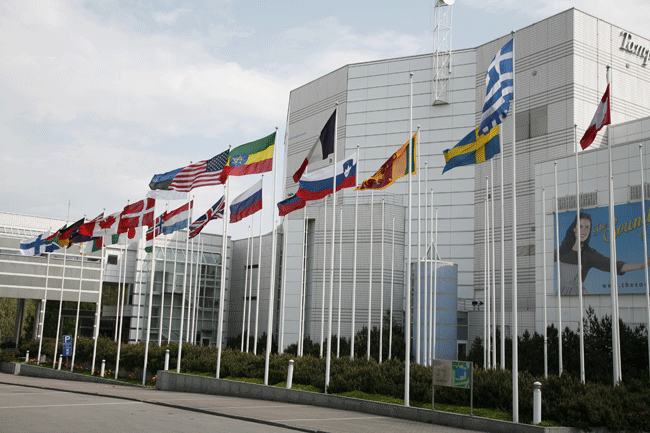 |
Issue 27 (2/2009)
|
|||
FSD Bulletin is the electronic newsletter of the Finnish Social Science Data Archive. The Bulletin provides information and news related to the data archive and social science research.
|
Data Archiving and Re-use Experts Gathered in TampereHelena Laaksonen | Mari Kleemola | Flag photo: Erkki Karén In the end of May, professionals on archiving, documenting and distributing digital social sciences research data from all over the world gathered in Tampere hall for the annual IASSIST/IFDO conference. The conference was organised in Finland for the first time, and it focused on the movement and life cycle of research data with its theme Mobile Data and the Life Cycle. The annual event gathers together professionals working in and with the social sciences, information technology, data services and data archiving. The topics discussed in the conference, such as international research infrastructures, data management and life cycle of research material, and open access, are also part of the current Finnish research political debate.
Presentations OnlineThe three-day conference programme included over 80 presentations, three plenary sessions open to the public, and about 20 poster sessions. The pre-conference meetings and workshops engaged part of the conference guests from Monday to Friday. The majority of the conference presentations are available on the web, and some of them can be viewed via webcast. For example, all three plenary sessions can be viewed on home computers. The 35th IASSIST/IFDO conference attracted 220 guests from 24 countries. The majority (i.e. over 50) of the guests were from the United States. The event attracted also Finnish participants more than usually, altogether 35. The effects of the economic depression on the number of conference guests were smaller than anticipated. The conference was hosted by the University of Tampere and the Finnish Social Science Data Archive. The IASSIST Program Committee was responsible for the conference programme. Arrangements Were SuccessfulBased on the feedback given by the conference guests, the practical arrangements were excellent, and the conference venue Tampere hall received praise. However, the fact that the wireless network could not be used free of charge was a target for recurrent criticism. IASSIST president Melanie Wright was also pleased with the smoothness of the local arrangements. "Last minute panic situations were avoided and everything worked perfectly, thanks to the local organisers", she said. Wright also praised the effectiveness of the Program Committee. The successfulness of the IASSIST/IFDO conference was substantially influenced by the financial support provided by the Federation of Finnish Learned Societies, data archives and various organisations in the field. Wright believes that the economic depression will influence the number of conference guests next year. She offers online participation as a solution. "Last year it was possible to participate in the conference online. In the coming years, it will be worthwhile to offer more possibilities to participate virtually, for instance using Skype. Online participation would be a good and affordable alternative to travelling", says Wright. Staff ChangesThe purpose of the ethics review process is to protect the rights of research participants. However, the complicated and time-consuming process also has some negative consequences. In the United States, there are even ongoing discussions about the effects of review process on research results, according to Turner. For instance, the review process affected the data collection methods in Turner's project. "Videotaping the meetings would have caused too much data protection problems, and therefore I recorded only the audio", she says. In addition to recording them, she took notes during the meetings. They helped in listening and transcribing the recordings later on. Videotaping would have reduced the need to take notes. Research Process Being FollowedIn IFDO's annual meeting during the conference, its long-term German President Ekkehard Mochmann resigned from his position. Sami Borg, Director of the FSD, was appointed as the next IFDO President. The FSD Information Services Manager Mari Kleemola, who had served as the IASSIST Regional Secretary for Europe for four years, resigned from her post and gave her last report in the conference. The current Regional Secretary is Brigitte Hausstein from the German data archive GESIS. The FSD Information Officer Helena Laaksonen started her four-year period as a member of the IASSIST Regional Committee for Europe in the conference. Next year's IASSIST conference will be held at Cornell University in the USA at the beginning of June.
Photo: At the close of the conference, the local organisers handed over the conference banner to next year's hosts according to the tradition. Tuomas Alaterä (on the left) and Mari Kleemola (on the right) from the Local Arrangements Committee of the Data Archive were handing over the banner to the Cornellians.
More information:
|

